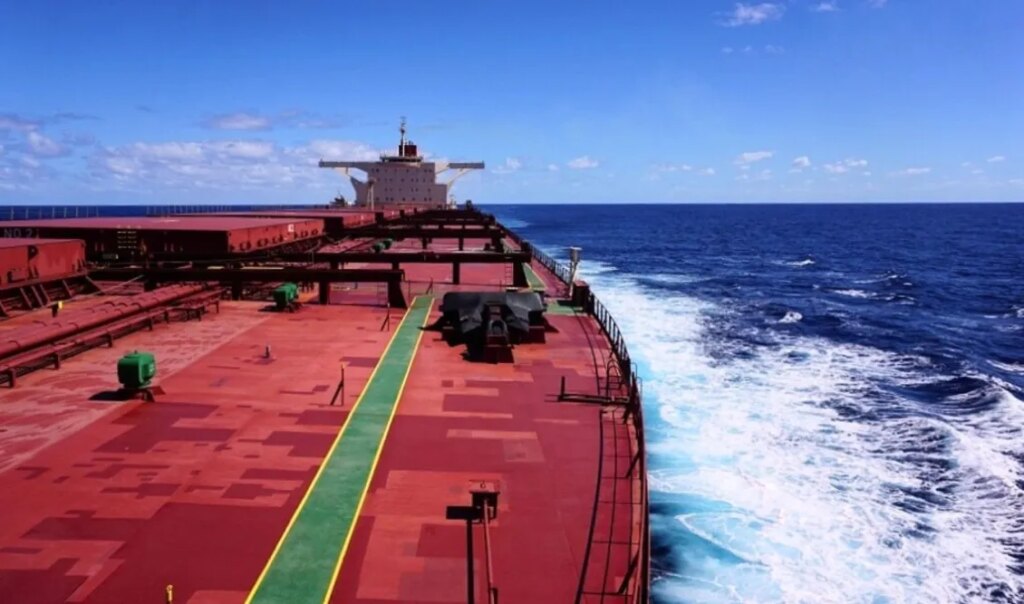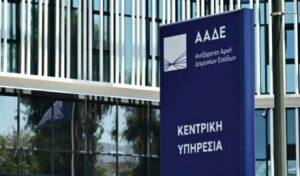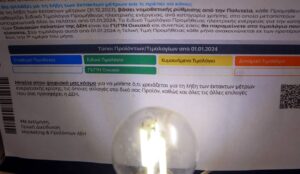The Office of Foreign Assets Control of the US Treasury Department (OFAC) imposed sanctions on July 3 on an extensive Iranian oil smuggling network. The network, led by Kurdish-Iraqi British businessman Salim Ahmed Said, facilitated for years the transport and “laundering” of Iranian oil as Iraqi product, circumventing international sanctions.
The smuggling network and deception methods
According to OFAC, Said secretly controls the UAE-based company VS Tankers FZE, formerly known as Al-Iraqia Shipping Services & Oil Trading FZE (AISSOT). This company plays a central role in Iranian oil smuggling, contributing decisively to facilitating ship-to-ship transfers and mixing Iranian oil.
VS Tankers has developed sophisticated methods for “rebranding” Iranian oil as Iraqi crude, aimed at deceiving international authorities. The network relied on bribing Iraqi officials, including Parliament members, to obtain fake certificates that allowed Iranian oil to be presented as Iraqi-origin.
Tankers and companies under sanctions
The US Treasury Department announcement confirms the imposition of sanctions on various tankers involved in covert Iranian oil deliveries. Among these is the Marshall Islands-flagged tanker DIJILAH (IMO 9829629), described as operated and managed by VS Tankers since 2019.
The vessel participated in multiple oil “transfusion” transfers with the tanker CASINOVA, which was sanctioned by the US in April 2024, near the maritime borders of Iran and Iraq.
VS Tankers is one of many companies sanctioned under Executive Order 13902, which targets Iran’s oil sector. Other companies controlled by Said include VS Oil Terminal FZE, VS Petroleum DMCC, Rhine Shipping DMCC, as well as British companies The Willett Hotel Limited and Robinbest Limited.
The role of VS Oil in oil mixing
OFAC described in detail the role of VS Oil, which manages storage tanks in Khor al-Zubayr in Iraq, where Iranian oil is mixed before being exported under Iraqi cover. Satellite and other monitoring data show VS Oil’s connections with tankers operating for Iranian entities Triliance Petrochemical Co. Ltd. and Sahara Thunder.
These companies have already been sanctioned for supporting the Islamic Revolutionary Guard Corps (IRGC) and the Iranian military. Revenue from these controlled activities has partially funded the IRGC-QF’s Quds Force, an organization designated by the US as an international terrorist organization.
Greek shipping companies in the spotlight
There are serious indications of Greek shipping businesses’ relationships with the Iranian oil smuggling network. Evalend Shipping, controlled by Kriton Lentoudis, and Petrochem General Management, controlled by Ioannis Perogianakis, were key commercial counterparts of AISSOT and VS Tankers for nearly ten years.
Ioannis Perogianakis reportedly acted as a ship broker for Salim’s organization, supplying vessels chartered to various companies of Salim Said, including AISSOT and Rhine Shipping.
Kriton Lentoudis’s Evalend Shipping has extensive relationships with Salim Said, as many vessels controlled by Lentoudis’s company were chartered to AISSOT and VS Tankers. Among these is the “Dijilah”, which operated for years as a “floating oil storage unit” where most of the mixing and “laundering” of Iranian oil took place.
Implications for Greek shipping
While neither Evalend Shipping nor Petrochem General Management have faced direct sanctions, their historical and ongoing commercial relationships with AISSOT and VS Tankers raise serious concerns regarding compliance and reputation.
According to OFAC regulations, non-US citizens may face secondary sanctions if they continue to conduct significant transactions with entities included in sanctions lists.
Greek shipowners operating in Middle Eastern crude oil trade may face stricter scrutiny from:
• Financial institutions enhancing due diligence
• Insurance companies with stricter criteria
• Charterers carefully examining counterparties
• Regulatory authorities conducting retrospective reviews
Enhanced pressure campaign against Iran
This latest round of sanctions represents the eighth action under OFAC’s enhanced pressure campaign against Iranian oil trade, following Presidential directive through National Security Presidential Memorandum 2.
The US State Department simultaneously designated six additional entities and four vessels under Executive Order 13846 for deliberately facilitating Iranian oil transactions.
Legal analysts warn that post-2020 transactions may face retrospective review by regulatory authorities, when Said’s illicit network became more active, regarding whether they connect to sanctioned oil flows or have documentation irregularities.




